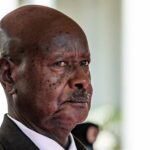China fails to stop racism against Africans over Coronavirus
Published on April 27, 2020 at 4:07 PM by Face of Malawi
African people continue to be barred from hotels, shops and restaurants in Guangzhou, despite Chinese officials assuring governments across Africa that discrimination resulting from efforts to contain the coronavirus outbreak would stop.
Racist discrimination in Guangzhou earlier this month caused outrage in Africa, provoking rare official protests to China by several countries.
Africans in the city who were contacted recently by the Guardian said they still faced hostility and racism, prompted by fears they may be carriers of Covid-19.
Frank Nnabugwu, a Nigerian businessman who has lived in Guangzhou for a year, said he was not allowed to return to his rented accommodation last week after being released from two weeks’ quarantine. “The security guards said to us: ‘No foreigners are allowed’. I was upset, very upset. I slept on the street,” the 30-year-old said.
Kidus Mulugeta, an Ethiopian who moved to China four years ago to study mechanical engineering, said the atmosphere in Guangzhou had changed rapidly.
“It was so fast,” he said. “I went into quarantine … We were treated fine. Then we came out. Everything was different, uncomfortable. Like Chinese people changed their minds.”
Mulugeta, who has a job offer at a Chinese company when he graduates, said many African people found it impossible to rent accommodation and hadn’t been allowed into supermarkets.
“They say ‘no foreigners’, but if it’s a Russian or European, they allow white people to enter,” he said.
A Ghanaian computer science student said he had been in a hotel when police officers took him to another hotel to be mandatorily quarantined and he was tested more than five times.
The 25-year-old, who requested anonymity, said he was denied entry at “about 15 hotels” and slept on the streets. “ I have been denied entry into public places, denied into restaurants. All the tests they did have been negative.”
Anger in Africa rose earlier this month when images of African residents in Guangzhou being barred from various locations began circulating on social media. Other images showed evicted Africans sleeping on the streets.
China has maintained strict screening protocols, concerned about any resurgence in infections by virus carriers who exhibit no symptoms or by infected people arriving from abroad.
Authorities have limited international flights and blocked almost all foreigners from entering the country, as well as required mandatory centralised quarantines for those returning from overseas. Experts say such wariness has given rise to new levels of xenophobia and that Africans have borne the brunt of this.
Guangzhou tightened measures after reporting more than 100 imported cases of Covid-19, including 25 involving foreign nationals, some from Africa, Chinese state media reported. The new measures included retrospective screening of previous arrivals.
African leaders are generally reluctant to criticise China, which has loaned governments massive sums and provided medical assistance in recent weeks, but the reports provoked rare official protests to Beijing.
Many African leaders were shocked by the vehemence of the online reaction in Africa to the incidents, said Cobus Van Staden, an expert in China-Africa relations at the South African Institute of International Affairs. “They realised there was domestic pressure … They usually tend to downplay [problems] but I think they realised that would be politically impossible this time,” he said.
A number of African states called in Chinese ambassadors and the African Union, which represents more than 50 states, said the discrimination had caused grief, pain and humiliation to all Africans.
Ghana’s information minister, Kojo Oppong Nkrumah, told the Guardian his government had summoned the Chinese ambassador for “a very stern conversation”.
Chinese officials moved quickly to deal with the initial accusations of discrimination. The Chinese embassy in Nairobi, for instance, told Kenya’s foreign ministry that authorities in Guangzhou “have been tasked to take immediate action to safeguard the legitimate rights of the Africans concerned”.
China’s foreign ministry spokesman Zhao Lijian acknowledged at the time that “there might be some misunderstandings in the implementation of measures” designed to prevent “overseas imports” of the virus. China treated all foreigners equally, Zhao said.
However, Beijing has also tried to suggest that reports of Africans targeted in Guangzhou are a plot to smear the country. An editorial in the state-run Global Times said western media, US politicians and “Hong Kong separatists” were among those “hyping” such incidents.
Roberto Castillo, an assistant professor at Lingnan University in Hong Kong who has been researching the African presence in China, said: “Unsurprisingly, China’s response was to deflect and spin the narrative as yet another situation distorted by western media and fake news, and to point out that China does not discriminate against any foreigners.”
China has made massive strides in its political, commercial and cultural presence in Africa in recent years and launched a diplomatic offensive at the beginning of the pandemic. The row over racism threatens some of these gains.
“The images of black people sleeping under bridges, families with children being evicted from their legally rented places of abode, as well as entrance and service denial to blacks, were seen by many as Chinese racism and as a Chinese betrayal of African solidarity in these difficult times,” said Castillo.
Credit: theguardian


